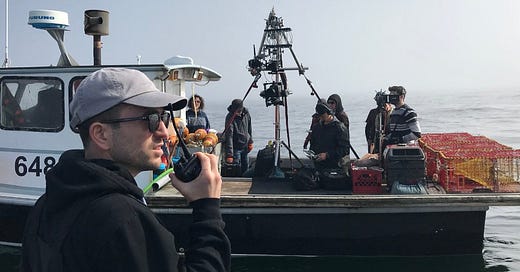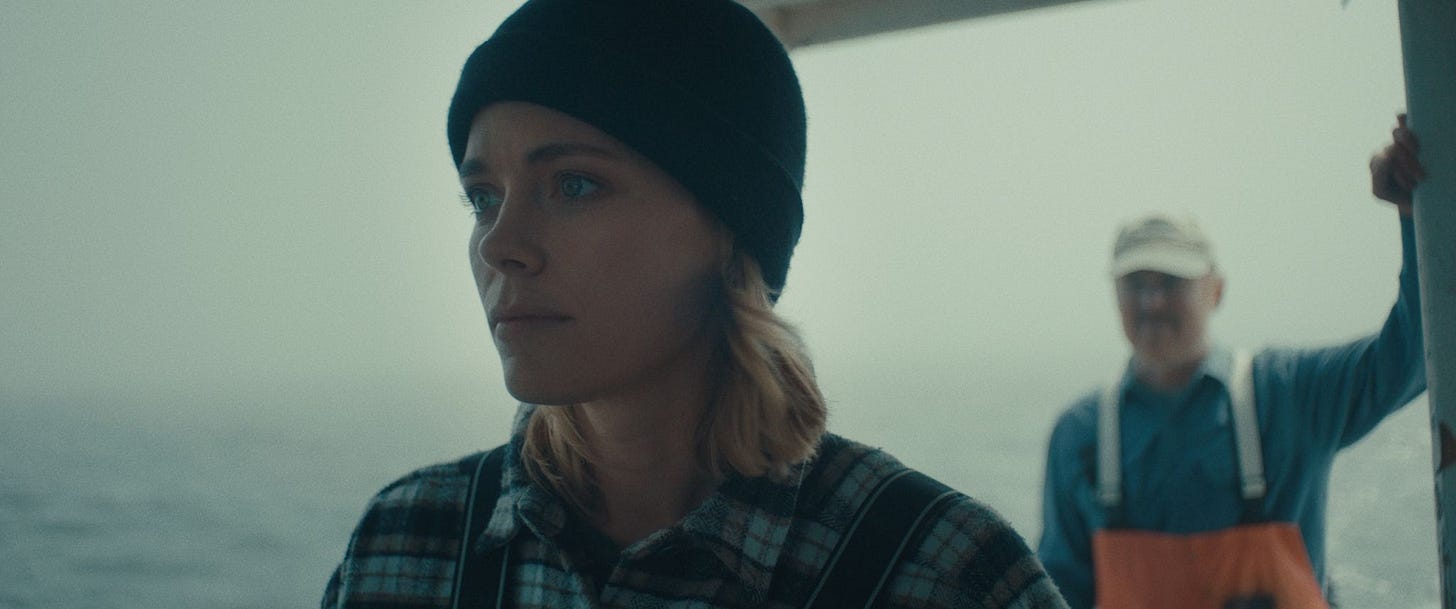Indy Film Fest: Matthew Ya-Hsiung Balzer, "The Catch"
The director of "The Catch" talks about his film, which was based on true crime reporting and personal stories heard on lobster boats and in small towns across New England.
Writer/Director Matthew Ya-Hsiung Balzer’s feature debut is set in a rural coastal Maine fishing community fighting to hold tight to its traditions as the world shifts around it. A woman returns to her estranged family just as her father is fighting off an attempt to ccorporatize the local harbor. Meanwhile, her ex-boyfriend plans to hijack local drug runners, but the robbery at sea goes awry. “The Catch” is based on true crime reporting and personal stories heard on lobster boats and in small towns across New England.
Click here for showtimes and tickets.
Tell me about your movie and why you wanted to make it.
THE CATCH is centered around a drug heist at sea, but at its heart, the film is a redemption story exploring the dichotomy of support and suffocation from family and community, the challenge of reaching beyond the expectations of the life you were born into, and the anger of a white working class community who believes they are being left behind.
I wrote the first version of the script based on a real life shooting between two lobstermen over a territorial dispute, and the arrest of a group of drug smugglers posing as lobstermen. During the writing process, the film shifted focus from two men fighting over the same bit of sea to the delayed coming-of-age of a not so young woman, and her buried desire to find a sense of belonging with her father. Some of those changes came from stories I heard on boats up and down the New England seaboard, about generational shifts in what was once a way of life handed down through families, about the economic impact of corporatization. I conceived of the film as a ‘Western on the water’, boats instead of horses, the fisherman as the last of the American frontiersmen, fiercely holding on to territory and a way of life in the face of change, classic Western themes of rugged individualism vs the encroachment of modernity, a traditional way of life under threat, the freedom of wide-open spaces. I worked with Cinematographer JP Wakayama Carey on a visual language to prompt this same conflict in the viewer, shooting the interiors with a stationary camera, contrasting with a sweeping, moving camera out at sea.
Other shifts in the story followed the changing trajectory of my own life. Both for the actors and in my writing, I believe the work has to come from some personal place, some relevance that has real meaning to you. While I did not grow up on a lobster boat, I did grow up in a small town in New England where it felt like everyone knew one another and their business, and I left that town as soon as I could.
Across the years between the first draft and the final cut, I reconnected with my family after a mutually agreed upon silence and sat at my father’s bedside as he died three months before we went into production. Echoes of these experiences live in this film, in the challenges of the main character’s relationship with her own father. THE CATCH became a film about reconciliation, about the gulf between the desire to do right, and the uncomfortable road to get there.
As a filmmaker, how do you feel about the shifting of viewership from theatrical to online during pandemic? Do you think it’s permanent?
We made THE CATCH to be seen in a theater. I mentioned my Cinematographer, and there are a host of other collaborators who designed this film for the theatrical experience. There is an amazing score by Ariel Marx, sound design by Ryan Billia, the striking work of our Colorist Jamie O’Bradovich. Some of that experience is lost in home viewing. Beyond missing the technical precision of sound and projection in a theater, there is a different level of attention inherent in theatrical viewing, in leaving the world for a period of time, sitting in the darkness and giving in to it (unless you’re unlucky enough to sit near someone who won’t stop looking at their phone). I love going to the movies and am excited to hopefully return to theaters before too long.
At the same time, I understand the desire, which predates the pandemic, to have entertainment on demand and at home. I think it would be naïve to think this is going to change, and of course streaming does provides access to a wider audience – something vital for an independent film like THE CATCH. The film made its World Premiere at the Austin Film Festival, UK Premiere at Manchester, recently played at the Florida Film Festival, and will continue to play at other festivals domestically and internationally later this year. Playing at a digital festival has its own unique challenges and benefits. I was changing my son’s diaper at the time of the film’s World Premiere – not exactly what I had imagined when we started this process – but the positive reaction we have received from strangers reaching out through social media, email, etc., has been a wonderful and unexpected pleasure.
Much of the process of independent filmmaking is about letting go of control and embracing what the day gives you. We cast the film and adjusted their roles to the actors’ understanding of their characters. We scouted locations and altered the script to suit them. We shot scenes out at sea with no control over the weather, boats pushed by the waves and the wind without concern for my shotlist or desires.
The collaboration of intention and circumstance continues as we send the film out into a digital, covid-impacted world very different than the one the film was created for, but that is indie filmmaking, keeping the destination in sight but not getting hung up in the details.
What do you think is the role of film festivals like Indy Film Fest in this
day?
We are thrilled to be playing at Indy Film Fest, an organization with a strong reputation for recognizing and championing independent films. We made the film with the help of a local community dealing with the same challenges as our characters, and more importantly, we made this film with their input, their stories, their values and a mutual respect. Our intent has always been to tell a fictional story that reflects the reality of a struggling local community in an increasingly global world, and to share it with audiences who can relate to that struggle. Indianapolis has a vibrant arts community as well as an understanding of the realities of economic disparity and disenfranchisement.
Making an independent film at any time has to be a labor of love, because it’s incredibly difficult, perhaps doubly so in the current environment. The opportunity to share our story with the audience Indy Film Fest has built over the last 17 years is vital to a film like ours. Our hope is that the film will resonate with the Indy audience, that they will tell their friends, their neighbors and their enemies.





